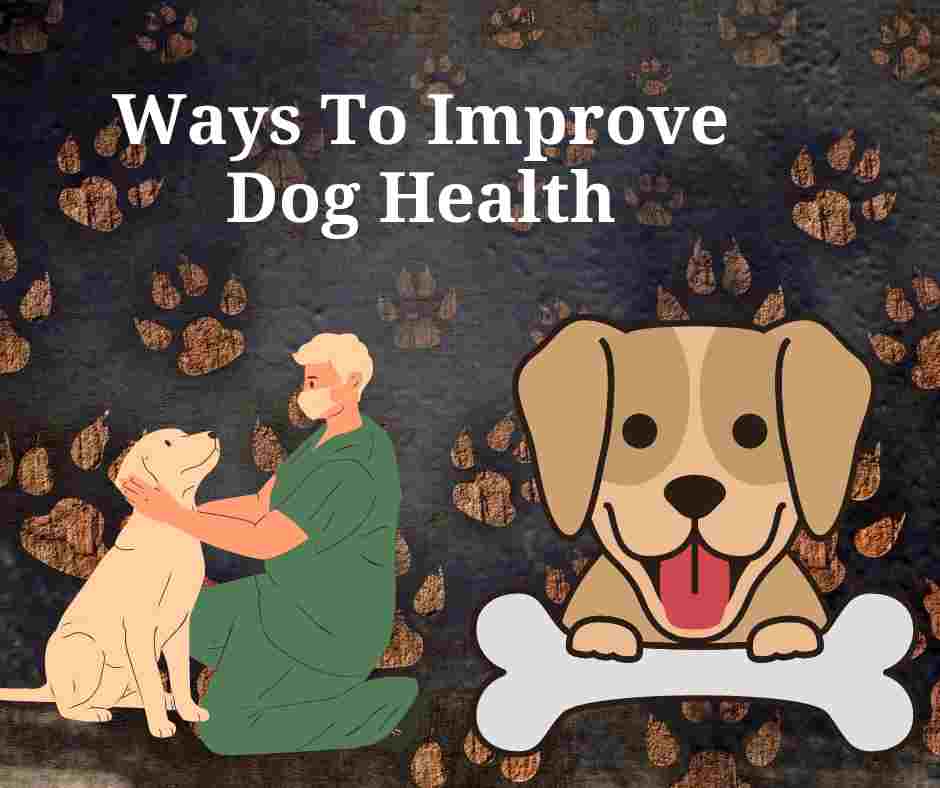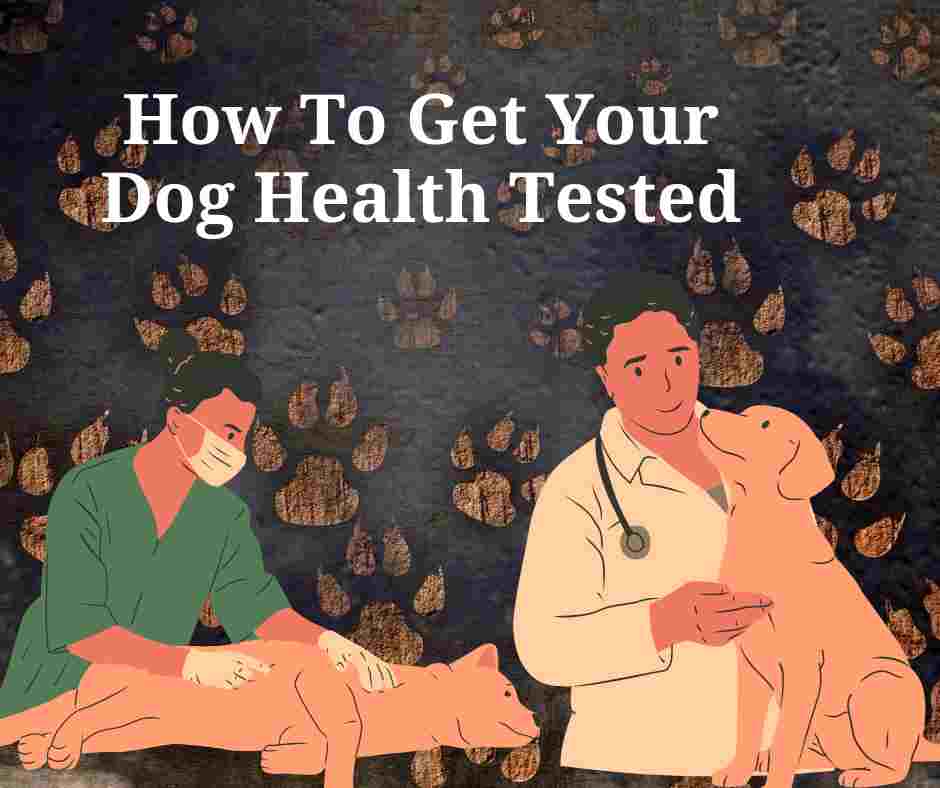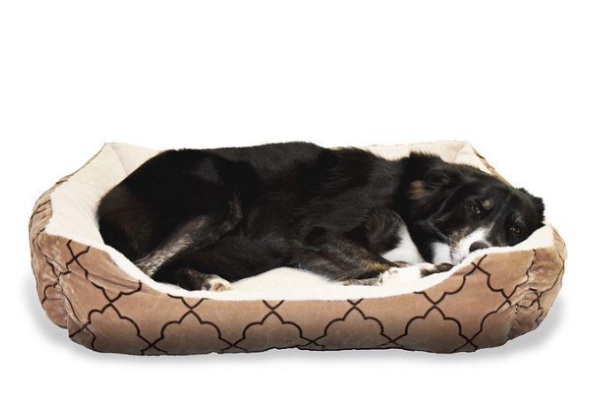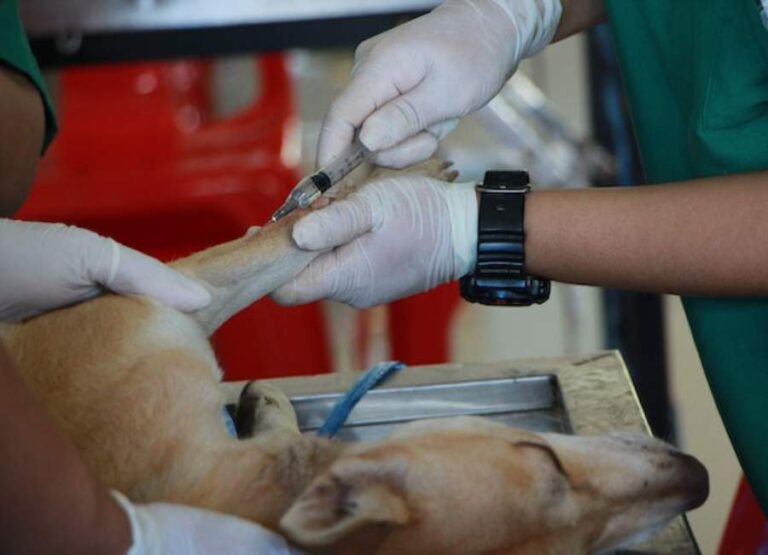Hints On How To Improve Dog Health

Here is a complete guide on how to improve dog health which includes all the good practices to keep your dog happy and healthy.
After reading this article, you will know 85% of the things you should be doing as a dog owner, so read through.
It is estimated that there are over 77 million dogs in the United States. With so many pups, it’s important to know how to care for them.
Giving your dog a healthy diet and plenty of physical activity is key to avoiding many common health problems.
Dogs often have trouble keeping up with humans when it comes to managing their weight, so it’s important to provide them with healthy food and enough exercise.
There are many ways that dog owners can take care of their pet’s health. A lot of people don’t know what they should be doing though, and end up making mistakes that harm the animal.
How To Improve Dog Health
Dog health is just as important to address as human health. In fact, it is often neglected because people don’t know what they should be looking out for.
Here are some tips on how you can keep your dog healthy and happy:
Increase the antioxidants intake of your dog
Nutrient-dense food is critical for your dog’s immune system.
Antioxidants, in particular, play an important role in keeping your dog healthy.
Antioxidants are vitamins and minerals found in foods that function to neutralize free radicals and prevent cell damage.
Many typical meals, such as berries, fruits, and vegetables, are high in antioxidants.
Some dog diets include antioxidants, but not in sufficient levels to make a significant impact on your dog’s health.
In that scenario, antioxidant supplements in the form of pills can be given to your dog.
There are lots of fruits and vegetables you can feed your dog that is totally safe and provides enough antioxidants.
Groom your dog on a regular basis
Grooming consists of a variety of tasks such as brushing your dog’s fur, clipping your dog’s nails, and trimming your dog’s fur.
According to research we conducted, this collection of activities contributes 20% to your dog’s general health conditions.
Over the course of four months, two dogs were left ungroomed and two were groomed; their baseline health status was satisfactory prior to the research.
After four months, the ungroomed dog had tough skin with dead fur and a variety of scars and hues.
The research simply demonstrates that there was a link between grooming and dog health and happiness.
Keep the fur-trimmed on their paws, ears, and backside to prevent matting. This will help prevent some health challenges.
The skin of the ungroomed dog was particularly awful. Therefore, you can improve the health of your dog by proper grooming.
Get your dog vaccinated
You can contact your veterinarian to find out about all the necessary vaccines your dog requires to stay healthy.
Vaccination against Bordetella, which protects against the spread of parvo, is generally advised once a year.
Pneumococcal pneumonia protects against the prevalent, bacterial type of pneumonia.
Vaccinations can assist your dog’s overall health by lowering the chance of malignancies such as distemper and rabies.
It’s also crucial to control your dog’s movement because there are lots of hazardous diseases out there that may be fatal if your dog isn’t protected.
Food preservatives should not be fed to your dog
Food containing preservatives might cause stomach discomfort because preservatives promote cardiac inflammation.
Foods containing nitrates should not be offered to dogs, according to the Food Standards Agency.
Instead, glance at the ingredients on the back of the bag to see what your dog is eating.
If you’re going to feed your dog prepared meats, be careful to avoid those that contain nitrates.
There are lots of food additives and preservatives the human system can handle that dogs can’t deal with, so always read the write-up on the body of anything you are giving your dog.
Make sure you de-stress your dog
Do you realize how stressful life is for your dog when you crate them? You can reduce stress by doing a variety of things.
To begin, take off their collar when they’re in their cage at night to prevent them from experiencing fright.
Second, attempt to create a soothing environment for them by providing them with something to chew on.
Finally, don’t overfeed them, give them clean water, and don’t overwork them – especially if they’re overweight or hyperactive.
Most people really think crating a dog is the best way to train their dogs but, that is not good.
You won’t need a crate if you have properly trained your dog, because well-trained dogs love free access to everywhere in the house.
De-stress your dog by stopping to change daily routine every few days, and not providing mental stimulation for your dog.
Learn more about the causes of dog anxiety.
Keep your dog free from parasites
Shedding is one of the biggest issues associated with owning a dog, and most of the time parasite increases the level of shedding in dogs.
There are lots of parasites that attack dogs which are as follows:
- Fleas
- Ticks
- Heartworm
- Roundworm, etc.
Among all these, fleas are the most common and can cause lots of health challenges to dogs.
If you are thinking of how to improve dog health, then keeping parasites away should be among your priorities.
You should replace dewormers with natural herbs
Tapeworms, whipworms, and other parasites can lead to a trip to the veterinarian for most dog owners.
Chemical dewormers, on the other hand, include extremely toxic chemicals that might cause serious adverse effects.
These chemicals, as well as additional nasties, are found in most conventional dewormers.
This makes them even more dangerous. So, instead of chemicals, go for natural herbs.
According to Dogs Naturally Magazine, here are some herbs you can use to deworm your dogs:
Chamomile
Chamomile is an excellent preventative and treatment for roundworms and whipworms. Give 0.25 ml to 50 ml per 20 lbs of body weight twice a day in glycerin tincture form.
Oregon Grape
Because Oregon grape is anti-parasitic, it’s a natural dewormer. Use 12 drops per 20 pounds of body weight as a tincture. This herb should not be given to dogs that have liver problems or who are pregnant.
Pumpkin seeds
One of the safest and most efficient methods to cure worms is to use pumpkin seeds. Simply ground the seeds and add 1/4 teaspoon per 10 pounds of your dog’s weight to his diet.
Pineapple and papaya
Both are high in enzymes that aid in the battle against worms. As a snack or with his food, give 1 tsp per 10 lbs of body weight each day.
Fermented vegetables
Carrots, sauerkraut, or kimchi are all wonderful options. With his meals, add up to 1 to 3 tsp each day for 20 pounds of body weight.
Make an appointment with your veterinarian on a regular basis
Visiting the vet on a regular basis ensures early detection of pending illnesses or ongoing processes that can lead to your dog’s total breakdown.
Do not wait until when your dog is completely broken down before you visit the vet, a regular visit to the vet is a way to improve your dog’s health.
I recommend you take your dog to the vet after every 16 weeks or less if you are feeding your dog with dry food alone.
Keeping records of your dog’s medical history will help you if there is an emergency in the health of your dog.
Always keep clean and fresh water available for your dog
If you are thinking of how to improve dog health then providing clean drinking water for your dog should be one of your priorities.
Dogs can get sick from drinking pathogenic infected water, and all sorts of insects can lay eggs on stagnant water.
To improve your dog’s health, make sure to always keep clean and fresh water for your dog.
Provide water cans that can be placed in safe areas of your house.
From my years of experience with dogs, I recommend you change your dog’s drinking water every day.
Keep your dog’s teeth healthy
When thinking of how to improve dog health, dental care should be one of your priorities, as this can hurt your dog.
Many breeds of dogs are prone to dental problems, always ask your vet or make research to find out if your dog is one of them.
There are lots of chew toys that can help your dog in terms of dental care, just ask your vet for the most recommended for your dog.
Brushing your dog’s teeth is something that most dog owners get bored with, however, I recommend you brush your dog’s teeth one to two times per week.
I also advise you to contact your vet for the right brush and paste for your dog.
Learn more about the benefits of regular dental care for dogs.
Exercise your dog daily
Dogs are among the most active pets, and they enjoy running, whether alone, in a pack, or with you.
Your canine companion needs exercise. Take him with you when you go for that 10 km jog in the mornings or when you go for a walk around the neighborhood in the evenings.
Furthermore, because dogs are sociable animals, you may spend some time taking them to a dog park where they can socialize with other dogs.
Exercise keeps your dog’s heart rate up and those happy chemicals flowing. I recommend a 10 – 20 minutes daily walk depending on the breed.
Feed your dog a balanced and nutritious diet
Despite the fact that dogs are carnivores, fruits, and vegetables are extremely healthy.
A healthy dog’s diet should include items that help to maintain a balance of acidity and alkalinity.
Proteins from meat and its byproducts are necessary, but eating them solely might create high acidity, which can lead to inflammation and other problems such as arthritis.
Including certain fiber-rich meals, such as brown rice, will help with overall digestion.
It is critical that you create a timetable or program to ensure that your buddy consumes a well-balanced meal throughout the day.
Avoid toxic substances around the house
Make sure you don’t have toxic substances around your house or neighborhood, as this can cause much harm to your dog.
An alkaline environment is crucial to the efficiency of a host of a dog’s internal organs like the heart, liver, gallbladder, and kidneys.
If you live in a heavily polluted area or industrial area you do not think of getting a dog unless you can keep the dog indoors.
Keep your dog toys and bowls clean
Dogs will smell and lick almost everything outside the home before running back in to play with their “personal stuff.”
Germs from your dog’s mouth will so be transferred to whatever he touches.
Washing toys and dishes decreases the number of germs that the immune system needs to deal with on a regular basis.
It is critical for your dog’s health to wash these objects on a daily basis with warm water (avoid dish soap since it may be harmful) – a short rinse generally suffices.
Also, after cleaning, make sure to properly dry toys and bowls since residual moisture is a good breeding ground for germs.
Socialize your dog with other dogs if you can
Your dog’s fear of other dogs will be reduced as a result of socialization, and they will be more receptive to being around other animals.
While you may take your dog to a local dog park or off-leash dog area, you can also take him to a local dog daycare facility to socialize with other dogs, which can be entertaining.
Additionally, because socialization is less stressful for the dogs, the consequences might be more beneficial.
Learn more about different ways of socializing a dog.
Provide plenty of mental stimulation for your dog
Mental stimulation is important in keeping your dog healthy.
A dog that does not receive adequate mental stimulation may become destructive – both to themselves and to their owner.
When a dog lacks mental stimulation, he or she may acquire behaviors like compulsive licking, which can lead to hotspots, as well as aggressive and destructive behavior like chewing on household things.
Learn more about the benefits of exercising your dog regularly.
Monitor your dog’s weight
The more a dog’s weight exceeds his ideal weight, the more difficult it is for his immune system to function.
Consult your veterinarian about your dog’s optimum weight and how many calories he should ingest each day, and then strive to maintain that weight.
Portion control is the most common technique to manage food consumption, and it is simple for you to use.
Get your dog spayed or neutered
Spayed or neutered dogs generally live healthier and happy than dogs that are not spayed or neutered.
If you are not breeding, please consider getting your dog spayed or neutered as this can not only help your dog’s health but make not run after other dogs when in heat.
Learn more about the benefits of spaying and neutering dogs.
Limit exercise time in hot weather
Even though I recommend giving your dog enough exercise depending on the breed of dog you have.
What I don’t recommend is giving your dog lots of exercise during the hot weather, as this will do more harm to your dog’s health.
Most dogs like French Bulldogs are prone to overheating during exercise, and should not be allowed to exercise in hot weather.
Prepare for symptoms before they happen
We have gone through lots of things you should be doing to keep your dog healthy.
Before a dog gets sick, the dog will show you some symptoms so of which are as follows:
- Loss of appetite
- Losing weight
- Weakness
- Inactivities
- Vomiting etc.
When you start noticing some changes in your dog’s behavior, please make out time to see the vet before things get too bad.
Learn more about the benefits of regular vet check-ups.
How To Get Your Dog Health Tested

Here are the steps you need to take to get your dog’s health tested;
Step 1: Find a dog health testing clinic near you.
Step 2: Talk to the vet in the clinic you located.
Step 3: Allow the vet to perform a physical exam.
Physical tests for your dog include the following:
- The vet will listen to the beat of the heart and lungs
- The vet will look in the mouth of your dog.
- Examining the fur of your dog.
- Checking the eyes of your dog for glaucoma.
- Examining the skin of your dog.
- Testing motion in the joints of your dog.
- Checking the eyes of your dog for cataracts.
- Checking the eyes for genetic issues.
Step 4: Allow the vet to check the weight of your dog before checking.
Step 5: Allow the vet to take your dog’s blood samples for further tests.
Step 6: Allow the vet to get your dog poop for a fecal exam.
Step 7: Let the vet check your dog’s vaccination status.
Step 8: Let the vet evaluate your dog’s hips. And carry out all the necessary tests.
Lastly, ask the vet for results and discuss medications with the vet. Always keep your dog’s medical records safe.
If you find value in this article, feel free to comment and share with other dog owners!!!




![Why Is My Dog Suddenly Sneezing So Much [8 Reasons] Why Is My Dog Suddenly Sneezing So Much](https://petcreeks.com/wp-content/uploads/2023/04/Why-Is-My-Dog-Suddenly-Sneezing-So-Much-768x555.jpg)

